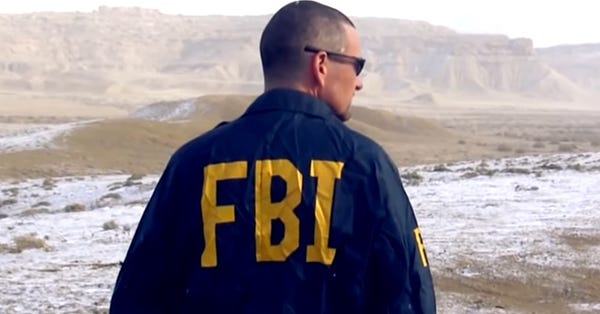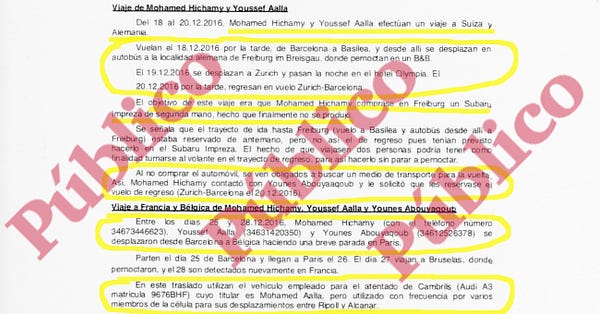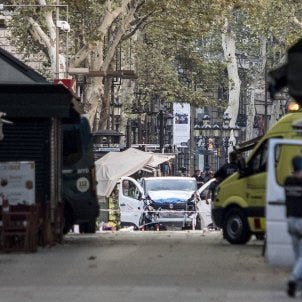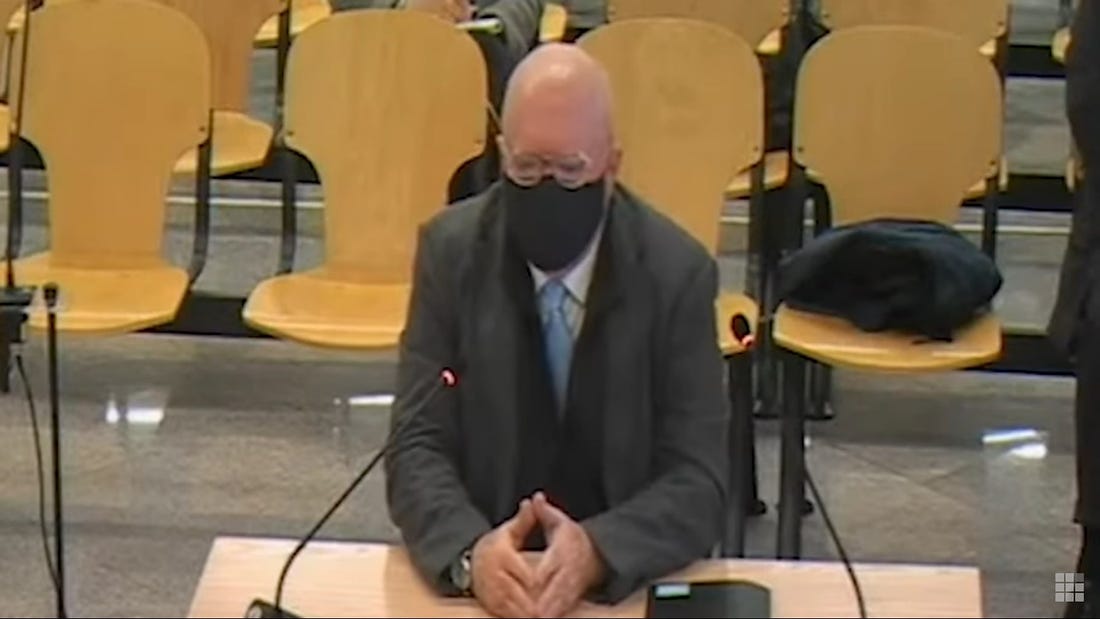Spain's spy agency backed 2017 'ISIS' attacks to 'scare' Catalonia before independence referendum
Spain's ex police chief said the National Intelligence Center (CNI) facilitated 2017 "ISIS" attacks to "scare" Catalonia before an independence vote. The leader of the terror cell was a CNI informant.
A blockbuster story is rocking Spanish politics: The former commissioner of Spain’s national police has testified in court that the country’s top spy agency facilitated 2017 terror attacks claimed by ISIS, in order to “scare” the region of Catalonia mere days before an independence referendum.
16 civilians were killed in the attacks, and more than 150 were injured. Two weeks later, the independence vote was defeated in a landslide.
The leader of the Salafi-jihadist terror cell that carried out the attacks was a longtime informant for Spain’s National Intelligence Center (CNI), and his activities were closely monitored by the spy agency.
There is debate about whether or not the CNI directly helped to orchestrate the terror plot, but at the very least the intelligence agency facilitated and allowed the attacks to be carried out, “to give the appearance of risk so that Catalonia would feel the need for the state’s protection,” the ex police commissioner told a Spanish court.


These close links between Spanish spies and terror attacks claimed by the so-called “Islamic State” in Catalonia are eerily reminiscent of the well-established ties between US police agencies and supposed “ISIS” attacks in the United States, which were often carried out by FBI informants.
An undercover FBI agent encouraged a shooter in Garland, Texas to “tear up Texas,”and was physically present at the site of the 2015 shooting that was declared the first alleged “ISIS attack” on US soil.


On August 17, 2017, a group of Salafi-jihadist extremists launched coordinated terror attacks in Catalonia — an autonomous region of Spain which has a unique cultural identity, a distinct language, and a powerful independence movement.
The 2017 terror plot consisted of car-ramming attacks, stabbings, and an explosion, and ultimately killed 16 civilians and wounded more than 150, many of whom were foreign nationals.
The first car-ramming attack took place in the busy city of Barcelona, the capital of Catalonia, on the bustling street of La Rambla, a popular tourist attraction. It was then followed by a car-ramming attack in the Catalan town of Cambrils.
The terror attacks fueled an authoritarian turn in Spanish domestic politics, and are so infamous they are known in popular culture by the shorthand 17-A (el 17 de agosto, or the 17th of August in Spanish) — much as 9/11 is synonymous with terrorism in the United States.
The violence also led to the resounding defeat of an independence referendum held in Catalonia less than two weeks later, on October 1 (1-O, as it is known in Spanish).
According to a former Spanish police chief, the landslide victory of pro-Spanish forces in the 1-O referendum was precisely the intention of the 17-A attacks.
This January 11, the ex commissioner of Spain’s national police, José Manuel Villarejo, officially testified in court that the 17-A terror plot had been facilitated by the National Intelligence Center (CNI), the nation’s top spy agency.
Villarejo said it was a “grave error” committed by the CNI’s director, Félix Sanz Roldán, who “badly calculated the consequences to give a little scare to Catalonia” in the lead-up to the 1-O independence referendum.
After the attacks, Villarejo recalled that CNI asked the national police to help it “try to fix the mess.”
The leader of the terror cell accused of organizing the Catalonia attacks was Abdelbaki es-Satty, known as “the Imam of Ripoll.”
Villarejo said the CNI had been given solid intelligence warning of an impending terror attack being plotted in Barcelona, but the CNI ignored it, claiming it was “not reliable” because the Morroco-born es-Satty “had worked for them, but in reality was a Moroccan spy.”
Villarejo’s testimony is not the only evidence linking the terror cell leader to the CNI. The influential newspaper Público published an investigation in 2019 that shocked the Spanish public, titled “The mastermind of the Las Ramblas massacre was a CNI informant until the day of the attack.”
The Público report thoroughly documented how the Imam of Ripoll had been a CNI asset, further bolstering the claims by former police commissioner Villarejo that the spy agency was central in the 17-A attacks.


The court testimony by José Manuel Villarejo unleashed a political explosion in Spain. So the next day, he tried to tame the controversy by slightly qualifying his remarks.
The CNI had not necessarily wanted the attacks to be carried out, Villarejo explained, but it did want “to give the appearance of risk so that Catalonia would feel the need for the state’s protection.”
When the leader of the terror cell, es-Satty, was accidentally killed in the explosion in the town of Alcanar the night before 17-A, however, “it was out of the hands” of the CNI, Villarejo said, and the terror plot went forward.
In 2017, Villarejo was arrested and accused of being part of a major corruption ring involving top Spanish politicians, state security forces, and economic elites. To save his own skin, Villarejo has willingly played ball, exposing the dirty operations happening inside the Spanish government.
It is worth mentioning that Villarejo has had a quarrel in particular with Félix Sanz Roldán, the former director of CNI, and it is clear that there is an institutional rivalry between the national police and the spy agency.
Unlike the US government’s CIA, which focuses on foreign operations (although operates domestically as well), and FBI, which is dedicated to domestic operations, Spain’s CNI is both a foreign and domestic intelligence agency.
Catalan independence supporters have expressed outrage over this scandal, and there are widespread calls for an investigation.


The former police commissioner’s scandalous remarks were widely covered in the Catalan press, and were reported in mainstream media outlets in Spain, including 20 Minutos, ABC, La Vanguardia, and El Periódico.
Some of these outlets have since tried to smear and discredit Villarejo by regurgitating claims leaked to them by officials in Spanish state security services, whose reputation has been hurt by Villarejo’s testimony.
Yet although this story is a national scandal in Spain, it has gotten very little coverage in the English-language press. The Scottish pro-independence newspaper The National published an article summarizing the scandal, and the Irish Times printed a somewhat skeptical piece.
Otherwise there has been very little foreign attention to this important scandal, which says a lot about how Western spy agencies are willing to use dirty tactics to manipulate domestic politics.
https://benjaminnorton.substack.com/p/spains-spy-agency-backed-2017-isis







Geen opmerkingen:
Een reactie posten